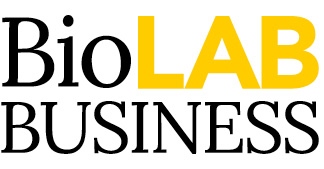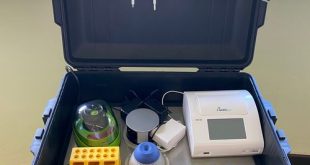By BioTalent Canada
For an industry struggling with a shortage of skilled workers and insufficient capital to fill these shortages, wage subsidies seemed like the solution to kill two birds with one stone. For years, BioTalent Canada has worked with Canada’s federal government to provide wage subsidy funding to the biotechnology industry. However, the organization’s most recent wage subsidy project, The Opportunities Fund, which provides subsidies for Canadians with disabilities working in the bio-economy, is somehow failing to gain a foothold in an industry that is an avid consumer of wage subsidy programs.
Since 2005, for example, BioTalent Canada’s Career Focus Program has been offering wage subsidies as an incentive for biotech employers to hire new graduates. This program has been wildly successful, injecting more than $2.5 million in the sector and placing 220 new graduates into jobs this past year alone. Historically, demand for wage subsidies in the biotechnology sector has exceeded the funding available, forcing BioTalent Canada to turn down applications.
Wage subsidy programs have proven to be critical, not just for the growth and development of Canada’s bio-economy, but for employment of underutilized talent pools as well.
Wage subsidies for new graduates motivated employers to consider a talent pool which they might not have considered before. Seeing the impact on both industry and the underutilized talent pool of new graduates, in 2015 BioTalent Canada was ready to replicate this success with other underutilized talent pools.
As a national non-profit organization, BioTalent Canada has a mandate to ensure that Canada’s bio-economy has access to the skilled people it needs. The organization welcomes funding initiatives to hire skilled talent, but also incentives for the biotech industry to look at strategically advantageous talent pools that are currently underutilized such as new graduates, internationally educated professionals, persons with disabilities, and women.
When the federal government introduced a new wage subsidy program at the end of 2015, BioTalent Canada welcomed the opportunity to provide more much-needed funding to Canada’s bio economy. The Opportunities Fund was to supply $1 million in wage subsidies as an incentive for biotech companies to hire 90 persons with disabilities over a three-year span.
With a little over a year into the Opportunities Fund Program, and only six persons with disabilities placed, BioTalent Canada is questioning the sector for its reluctance to hire persons with disabilities. Anecdotally, BioTalent Canada was grappling with biotechnology employers stating a preference to “wait for other wage subsidies to become available,” rather than utilizing the Opportunities Fund.
Rob Henderson, President and CEO of BioTalent Canada, has been vocal about hiring practices within Canada’s biotechnology sector, particularly in the life sciences. “For an industry whose mission is to develop molecules and technology to improve the lives of persons with disabilities, it is ironic to see its unwillingness to hire the same individuals its science aims to benefit.”
The hiring statistics paint a disturbing picture. In BioTalent Canada’s 2013 labour market report Sequencing the Data, only 7.6% of biotech companies reported having persons with disabilities on staff, down 14.3% from 2008, when 21.9% of companies had persons with disabilities on staff.
Further research in BioTalent Canada’s Sequencing the Data, also shows companies with a diverse workforce reporting improvements in innovation, problem-solving and productivity. So, striving toward a diverse workforce is just good business practice.
BioTalent Canada wants the industry to keep its focus on attracting the best talent and recognizes innovation is the bread and butter of the biotechnology sector. “It is imperative to tap into strategic talent pools like persons with disabilities to remain competitive. The standpoint that hiring persons with disabilities is a charitable undertaking with potential detrimental consequences for the business could not be further away from the truth,” says Henderson.
Lisa Fraser, Founder and CIO of Wearable Therapeutics, agrees. Wearable Therapeutics, based in Vancouver, is the developer of Snug Vest, an inflatable vest that provides anxiety relief and sensory integration through a clinical method called deep pressure therapy. The company is one of the employers utilizing the Opportunities Fund wage subsidy. “Hiring a diverse workforce strengthens our team and strengthens our products and services, so we can better serve and understand our diverse customer populations,” says Fraser. “We hire the right person for the job always, regardless of any mental, physical, sexual, and social differences.”
If recruiting within the same talent pool is not turning up the skilled and experienced workers Canada’s bio-economy needs, BioTalent Canada advocates it is time to look at underutilized talent pools. As a sector with challenges accessing capital and dependence on highly skilled talent to thrive, the biotechnology industry can ill afford to turn down capital and skilled talent. The industry must focus on hiring the best talent.
To reach organizations that understand the impact of a diverse workforce on their bottom line and are already hiring persons with disabilities, BioTalent Canada actively works with companies that are providing accommodation technology for persons with disabilities. The first partnership of its kind is with eSight, a Toronto-based company developing electronic glasses that let the legally blind see. Through this partnership, BioTalent Canada is expanding its reach to organizations that are already in the mindset of a diverse workforce and hiring persons with disabilities.
For eSight, joining BioTalent Canada as a project partner for the Opportunities Fund was a natural fit. “At eSight, we have a simple but profoundly fundamental belief: that everyone deserves to see,” says Brian Mech, President and CEO of eSight. “This mission extends to the workplace. We are proud to supply the technology that helps legally blind individuals build and grow a career which they are passionate about.”
BioTalent Canada is working to extend wage subsidies to more companies hiring persons with disabilities. Beyond opening the door to employment opportunities for persons with disabilities within biotechnology, it is about levering existing skills to grow Canada’s bio economy.
To continue driving innovation, it is the sector’s duty to seek the best and the brightest to work in Canada’s bio economy. “Albert Einstein and Sir Isaac Newton are just two of history’s geniuses who worked in science while managing a disability,” says Henderson. “In this day and age, a disability should not limit any talented Canadian from working in their field of expertise, especially where their work could benefit all Canadians.”
 BioLab Business Magazine Together, we reach farther into the Canadian Science community
BioLab Business Magazine Together, we reach farther into the Canadian Science community





